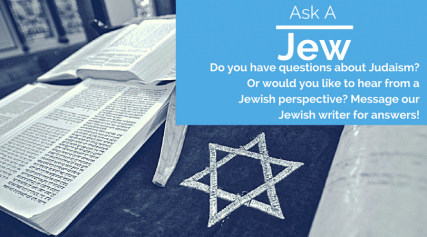What questions do you have about Judaism? Submit them online, or fill out the form below.
Do Jews have a system, a method, a discipline, designed to subvert hatred in relationships — especially something that requires contact between the self and the hated?

Sacks explains what he thinks Moses is really saying: “To be free, you have to let go of hate.” He adds:
If they continued to hate their erstwhile enemies, Moses would have taken the Israelites out of Egypt, but he would not have taken Egypt out of the Israelites. Mentally, they would still be there, slaves to the past.
According to the rabbi, the injunction “You shall remember that you were slaves in Egypt,” often heard during Passover seders, is not a desperate plea for Kill Bill-style vengeance. Instead, Sacks says, “it appears as part of the logic of the just and compassionate society the Israelites are commanded to create: the alternative order, the antithesis of Egypt.”
We’re supposed to learn from our oppression that we must not, under any circumstances, oppress others. And not just because oppressing people is morally wrong, but also because responding to violence with more violence produces a downward spiral of mayhem that inevitably harms us, too.
So how can we subvert hate within ourselves? Sacks prescribes the following: “sublimate pain into constructive energy and the determination to build a different future.” For example: “Give generously to the poor. … Share your blessings with others.” The rabbi also quotes Martin Luther King Jr.: “Darkness cannot drive out darkness: only light can do that. Hate cannot drive out hate: only love can do that.” That seems to be the gist of Sacks’ message, based on Jewish principles: The best way to cleanse yourself of hatred is to love others — maybe even, someday, your former enemies.
That’s a big ask, especially for survivors of oppression. American Jews can’t be expected to cozy up to Charlottesville marcher and alt-right poster boy James Allsup. We shouldn’t even be expected to hug it out with former foes who claim to feel great remorse, such as convicted 2006 Seattle Jewish Federation shooter Naveed Haq.
Victims of trauma, or members of a people group that was traumatized, don’t owe the perpetrators anything in particular. What they must do, as individuals and/or as a community, is decide what the best way is to move forward to meet their own needs. From both a spiritual and a psychological perspective, hatred usually isn’t it.
It is, of course, entirely possible not to hate someone but also to insist on keeping a safe distance, for the sake of your own security and mental health. My big takeaway on this topic is that Moses — one of the greatest leaders in Jewish history — clearly recognized the value of letting hatred go, even after his people had endured years of enslavement. For most of us, who have not suffered so terribly, letting go of hate may not be easy, but it should definitely be possible.









